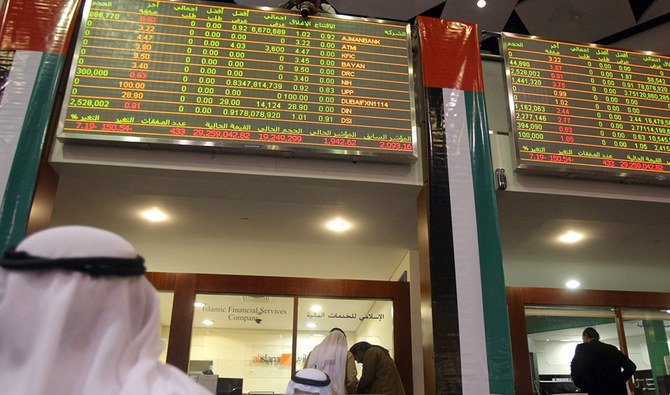
- ARAB NEWS
- 02 Jul 2025

As a straw in the wind, the decision by Dubai authorities to delist shares in DP World tells us a lot about the regional economic and financial situation. But it raises as many questions as it answers.
DP World is one of the few regional companies that has made it big on the global stage. Its international network of maritime and land ports, as a well as an increasing number of industrial zones, grew out of the old P&O business that Dubai bought in 2006, and has been a star performer in the UAE economy for most of that time.
It has been estimated that some 25 percent of Dubai’s economy is generated by activities in Jebel Ali and its associated industrial zone. It is a growing force in Saudi Arabia via its plans for big-time investment in the booming port of Jeddah.
But DP World’s involvement with public equity markets has never sat easily within the government-owned Dubai World conglomerate. Its initial public offering (IPO) in late 2007 was mispriced and badly timed, coming just as fears of a credit crunch in the global financial system were growing.
Then there was a four-year listing on the London Stock Exchange that ended in 2015 with DP World retreating back to Dubai amid complaints about weak trading volumes.
Now it is intending to cancel that listing — on the Nasdaq Dubai exchange — with an offer to shareholders to buy them out at a 30 percent premium to the market price last week. With a premium like that, you can expect investors to rush for the door.
The official rationale for the delisting was, again, that stock markets did not really understand DP World and was not giving it the valuation it deserved. The short-term priorities of equity investors did not coincide with the long-term capital requirements of an infrastructure business such as DP World, it said.
There is some sense in all that, but surely an equal reason for the delisting was the ongoing financial liabilities of the Dubai World conglomerate that owns 80 percent of the shares. As part of the deal, DP World will take on an extra $8 billion in debt, allowing its parent to meet other obligations. It expects an investment rating that will allow it to assume more debt in the future.
The final lesson from the DP World decision could be that the center of investment gravity in the Gulf is slipping inexorably toward Riyadh.
Frank Kane
This looks like a pre-emptive move to head off concerns about corporate debt levels in Dubai. Since the 2011 restructuring of debts owed by Dubai World and other entities in the emirate, there has been a regular round of what some bankers call “extend and pretend” — extend the terms of the liabilities and pretend they will get them repaid in full one day.
The overall level of corporate and quasi-corporate debt in the emirate has remained stubbornly above the $100 billion mark.
All the talk in financial circles in Dubai these days is about debt. Restructuring and renegotiating deals are the order of the day, as the economy stays stuck in a real estate-induced rut. Dubai World strategists are to be commended for having recognized the challenge early and acted on it.
But the delisting decision raises issues for other parts of the UAE financial system too. It will remove from Nasdaq Dubai its biggest stock by far, and one of the few with international recognition.
Sure, there are still some big beasts on the UAE markets, with the mobile phone companies Etisalat and Du and some big real estate developers, to say nothing of the Adnoc Distribution business IPO’d in 2017. But the removal of some $11 billion of market capitalization with DP World’s delisting will hit Nasdaq Dubai hard.
Inevitably, there are calls already to merge that exchange in with the Dubai Financial Market, and even with the Abu Dhabi Securities Exchange, to produce a pan-UAE stock exchange. These notions have been in the air for many years.
Meanwhile, the contrast with Saudi Arabia’s Tadawul could not be more stark. A couple of months after the Kingdom staged the biggest IPO in history with the listing of Saudi Aramco, the UAE abandons one of its flagship listings with DP World.
The final lesson from the DP World decision could be that the center of investment gravity in the Gulf is slipping inexorably toward Riyadh.